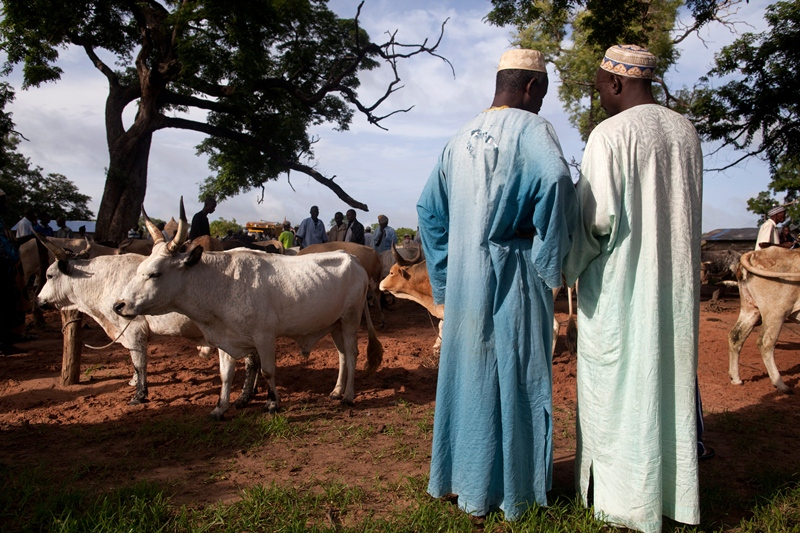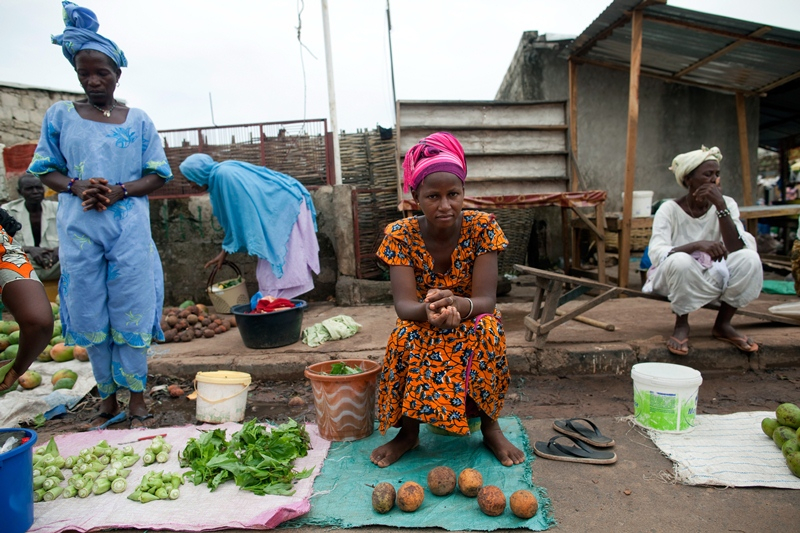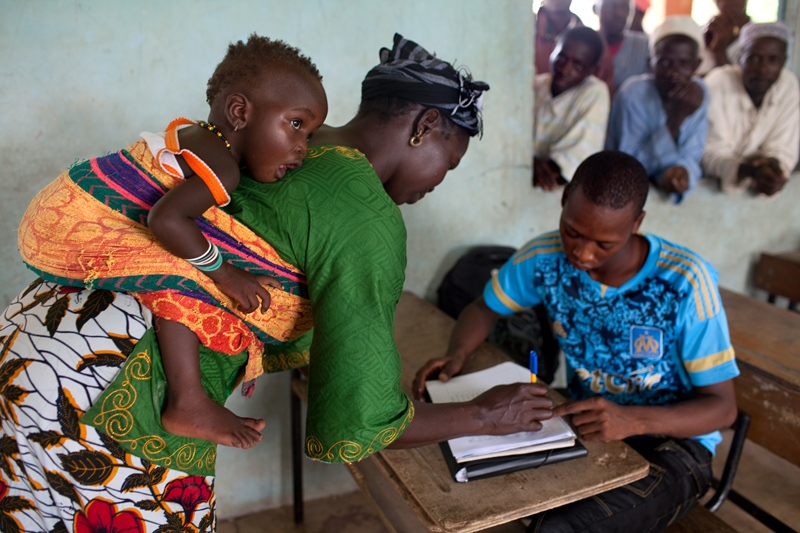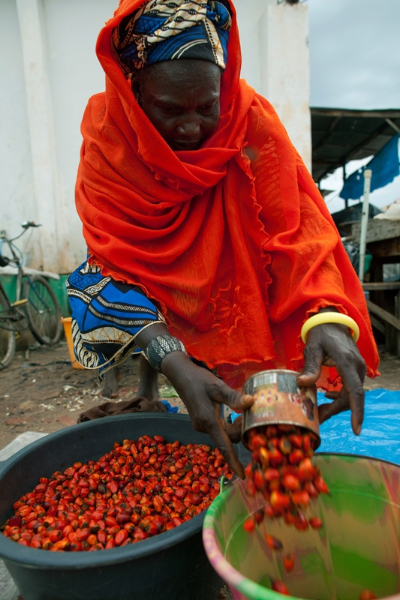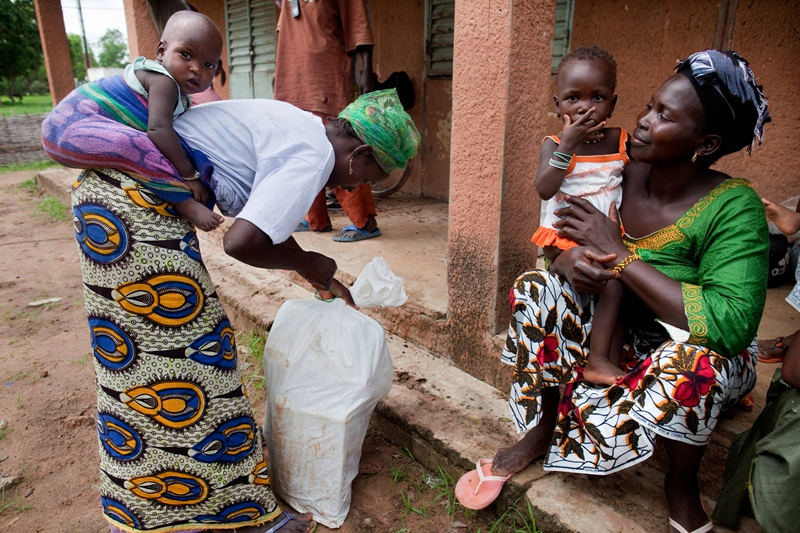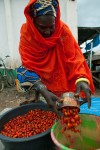Sahel food crisis: A vase and two profiles
Stevens recently returned from the Kolda region of Senegal, which—like much of the western Sahel region of Africa—is experiencing a severe food crisis. This is the first of four blogs from the trip.
In Senegal, the seasonal rains have arrived, and as we drove out from the town of Kolda to surrounding villages, the countryside was a lush green. Flourishing rice paddies and cornfields auger well for the harvest in the fall. There is food on the market streets—mangoes, rice, and a host of vegetables—and the livestock market, with its sleek oxen and healthy young stock, is thriving.
But, as with the famous optical illusion of the vase and two profiles, you can’t understand what is in front of your eyes until you examine the negative space that surrounds it.
Crops are on the way – yes. But what are people eating now? The answer is very little. The last harvest failed, and for months on end, small-scale farmers have been struggling to scrape together a little rice and millet each day to feed their families.
The food in the market? Without food stocks of their own, vendors are resorting to buying food from traders on credit—much of it imported or gathered from the bush—and paying back all but a tiny profit at the end of the day. The upshot: even the food vendors are hungry.
And the livestock market, once understood, is a scene that only an armchair economist and a few wealthy traders could cheer. Farmers here are selling off their animals because they are desperate for money to buy food. The powerful oxen that would once have plowed their fields are gone now, and the future of their farms is up for grabs.
Even the sight of children playing in the villages has a grim counterpart: those who lack the energy to play. Malnutrition is taking a heavy toll, and many young ones bear the telltale marks of severe protein deficiency: orange hair, distended bellies, and the tired gaze of the aged.
But I could see another reality here that is unequivocal. People are devoted to their children. “We work hard to find food to eat. If we don’t have enough, the children eat and the older people wait,” said a mother of four named Haby Sow. The parents I met everywhere were a weary cast of heroes, setting aside their own needs for food and rest and medical care to be sure their children could eat for another day.
It was a relief to learn from them that our programs are making a difference.
Read blogs about our programs to improve access to food and help people protect the health of their families.
Read about what Oxfam is doing in the food crisis across the western Sahel.
An urgent request: Oxfam’s programs for this emergency are severely underfunded. Please help us with a donation if you can.
